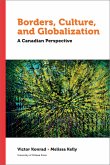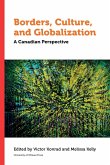The evolving aid architecture and mounting development challenges caused by recent food, financial and energy crises, demand an urgent and critical review of existing aid modalities, policy-making and forums for international cooperation. In light of the rise of emerging powers, an important question is the extent to which the changing global order is transforming the nature of development cooperation. Promoting equitable broad-based economic growth leading to poverty alleviation requires new understanding of what constitutes development assistance, good governance, transparency, ownership, and accountability. The future of SSC depends on many factors, such as improved means of communication and sharing of knowledge among partner countries, adopting a more analytical approach to define regional and global public goods, identifying good and bad practices and evaluating them, and improving transparency, merging economic and social priorities. Using a variety of case studies, this book provides novel approaches for furthering SSC on a global scale, to establish more effective public policies in the area of international development. This book is published in English. - Les changements en matière d'aide internationale et les défis soulevés par les crises alimentaires, financières et énergétiques exigent un examen critique des conventions actuelles en matière d'assistance et d'élaboration de politiques et de forums décisionnels en coopération internationale. À la lumière de la montée de pouvoirs émergents, une analyse de la manière dont un ordre mondial en mutation transforme la nature de la coopération pour le développement s'impose. La promotion d'une croissance économique équitable et d'une réduction de la pauvreté exige une nouvelle compréhension de l'aide au développement et une gouvernance, transparence, propriété et imputabilité optimales. L'avenir de la Coopération Sud-Sud repose sur de nombreux facteurs, comme l'amélioration des moyens de communication et le partage des connaissances entre pays partenaires, l'adoption d'une approche analytique pour définir les biens publics régionaux et mondiaux, l'identification et l'évaluation des bonnes et des mauvaises pratiques et la fusion des priorités économiques et sociales. Au moyen d'études de cas, les auteurs proposent des approches novatrices pour promouvoir la Coopération Sud-Sud et établir des politiques de développement international efficaces. Ce livre est publié en anglais.
Hinweis: Dieser Artikel kann nur an eine deutsche Lieferadresse ausgeliefert werden.
Hinweis: Dieser Artikel kann nur an eine deutsche Lieferadresse ausgeliefert werden.








